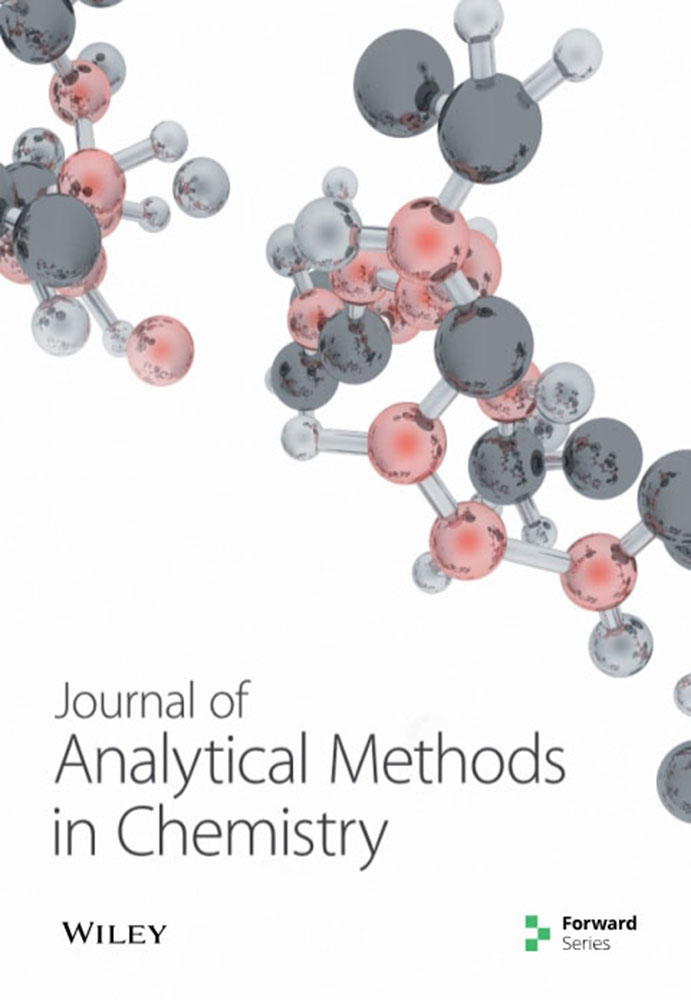纳米TiO2/Nd/稻壳灰改性材料的制备及光催化表征
IF 2.3
3区 化学
Q3 CHEMISTRY, ANALYTICAL
引用次数: 1
摘要
像利福平这样的抗生素通常会在环境中持续存在。当进入水中时,它会引起抗菌素耐药性,影响生态系统并在水生生物中积累,并通过食物链影响人类健康。本研究采用溶胶-凝胶水热法在二氧化钛中掺杂钕(0.01 ~ 0.8%)。将TiO2/Nd包覆在稻壳灰上,得到Nd含量为0.36% (w/w)的改性TiO2/Nd/稻壳灰材料。采用x射线衍射、能量色散x射线、透射电镜、扫描电镜、禁区能、比表面积等分析了材料的结构特征和光催化性能。TiO2/Nd材料表现出比TiO2更高的光催化分解能力,且与Nd含量有关。Nd含量为0.36 ~ 0.80%的TiO2/Nd材料的利福平去除率比Nd含量为0.01 ~ 0.28%的TiO2/Nd材料高出约40%。研制了一种新型光催化材料TiO2/Nd/稻壳灰分解利福平。TiO2/Nd和TiO2/Nd/稻壳灰材料在光照下90 min内的利福平降解效率分别达到约86%和75%。虽然效率较低,但由于TiO2/Nd/稻壳灰材料用量少、易于回收等优点,采用光催化法(日光下)降解水中利福平残渣。在利福平去除过程中,发现k值符合零级和一级动力学。特别是在太阳辐照下,TiO2/Nd和TiO2/Nd/稻壳灰的R2值约为0.98。这些结果之前已经作为预印本发表过。本文章由计算机程序翻译,如有差异,请以英文原文为准。
Preparation and Photocatalytic Characterization of Modified Nano TiO2/Nd/Rice Husk Ash Material for Rifampicin Removal in Aqueous Solution
Antibiotics like rifampicin are often persistent in the environment. When entering the water, it causes antimicrobial resistance that affects the ecosystem and accumulates in the aquatic organisms and affects human health through the food chain. In this study, titanium dioxide was doped with neodymium (0.01 to 0.8%) using the sol-gel hydrothermal method. TiO2/Nd was then coated on rice husk ash to produce a modified TiO2/Nd/rice husk ash material containing 0.36% (w/w) Nd. The structural characteristics and photocatalytic properties of the materials were analyzed by X-ray diffraction, energy dispersive X-ray, transmission electron microscopy, scanning electron microscopy, forbidden zone energy, and specific surface area. The TiO2/Nd material exhibited a higher photocatalytic decomposition capacity than TiO2 and depended on the Nd content. The rifampicin removal efficiency of TiO2/Nd materials with 0.36 to 0.80% Nd contents was approximately 40% higher than that of TiO2/Nd containing 0.01 to 0.28% Nd. A new photocatalytic TiO2/Nd/rice husk ash material was developed to decompose rifampicin. The rifampicin-degrading efficiency of TiO2/Nd and TiO2/Nd/rice husk ash material reached approximately 86 and 75%, respectively, within 90 min under sunlight. Although a lower efficiency was obtained, the TiO2/Nd/rice husk ash material was selected to degrade rifampicin residue in water via the photocatalytic process (under sunlight) because of its advantages such as requirement of a small amount and easy recovery. In the rifampicin removal process, k values were found to match the zero- and first-order kinetics. In particular, for TiO2/Nd and TiO2/Nd/rice husk ash under solar irradiation, R2 values reached approximately 0.98. These results have been previously published as a preprint.
求助全文
通过发布文献求助,成功后即可免费获取论文全文。
去求助
来源期刊

Journal of Analytical Methods in Chemistry
CHEMISTRY, ANALYTICAL-ENGINEERING, CIVIL
CiteScore
4.80
自引率
3.80%
发文量
79
审稿时长
6-12 weeks
期刊介绍:
Journal of Analytical Methods in Chemistry publishes papers reporting methods and instrumentation for chemical analysis, and their application to real-world problems. Articles may be either practical or theoretical.
Subject areas include (but are by no means limited to):
Separation
Spectroscopy
Mass spectrometry
Chromatography
Analytical Sample Preparation
Electrochemical analysis
Hyphenated techniques
Data processing
As well as original research, Journal of Analytical Methods in Chemistry also publishes focused review articles that examine the state of the art, identify emerging trends, and suggest future directions for developing fields.
 求助内容:
求助内容: 应助结果提醒方式:
应助结果提醒方式:


